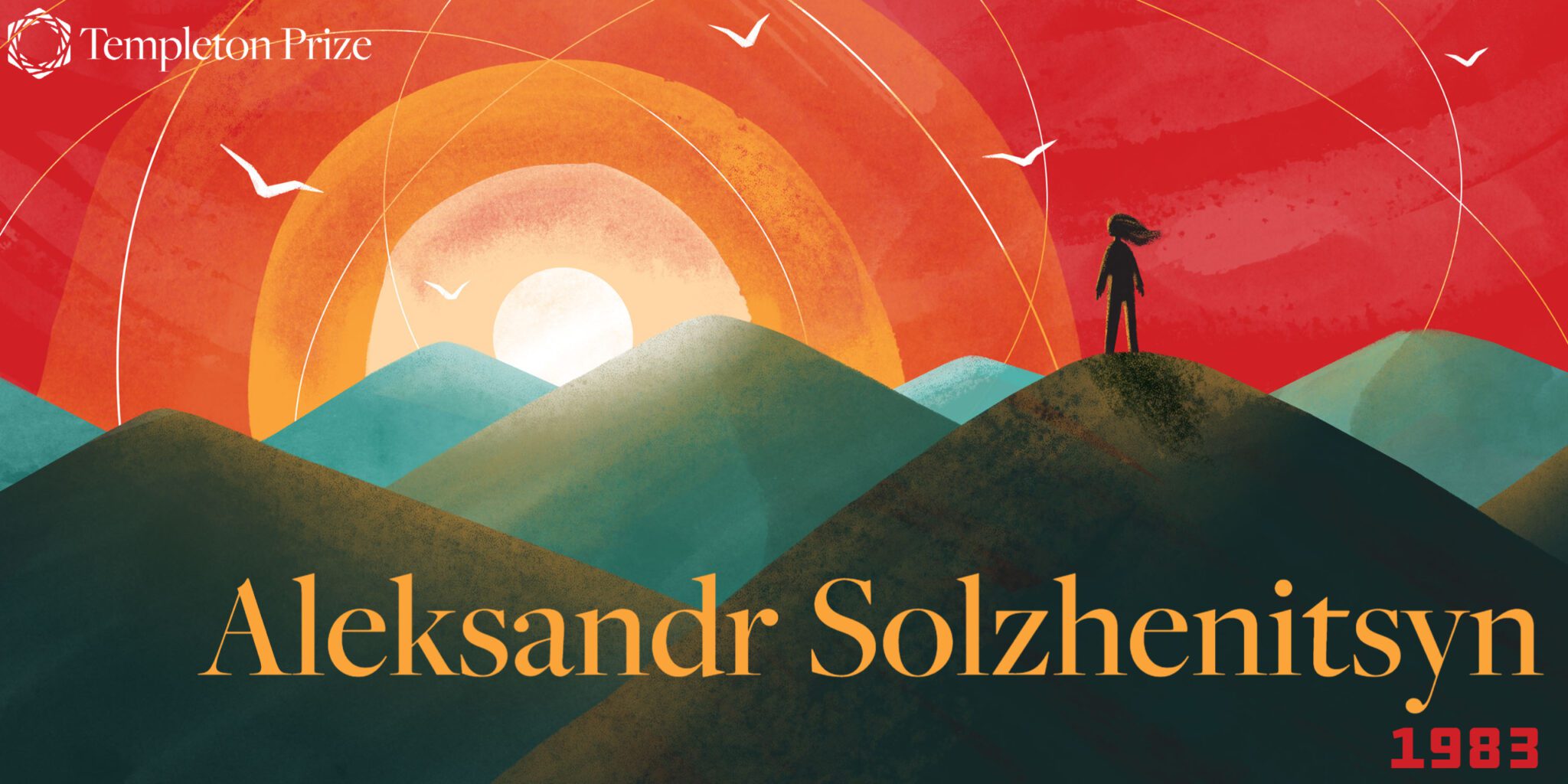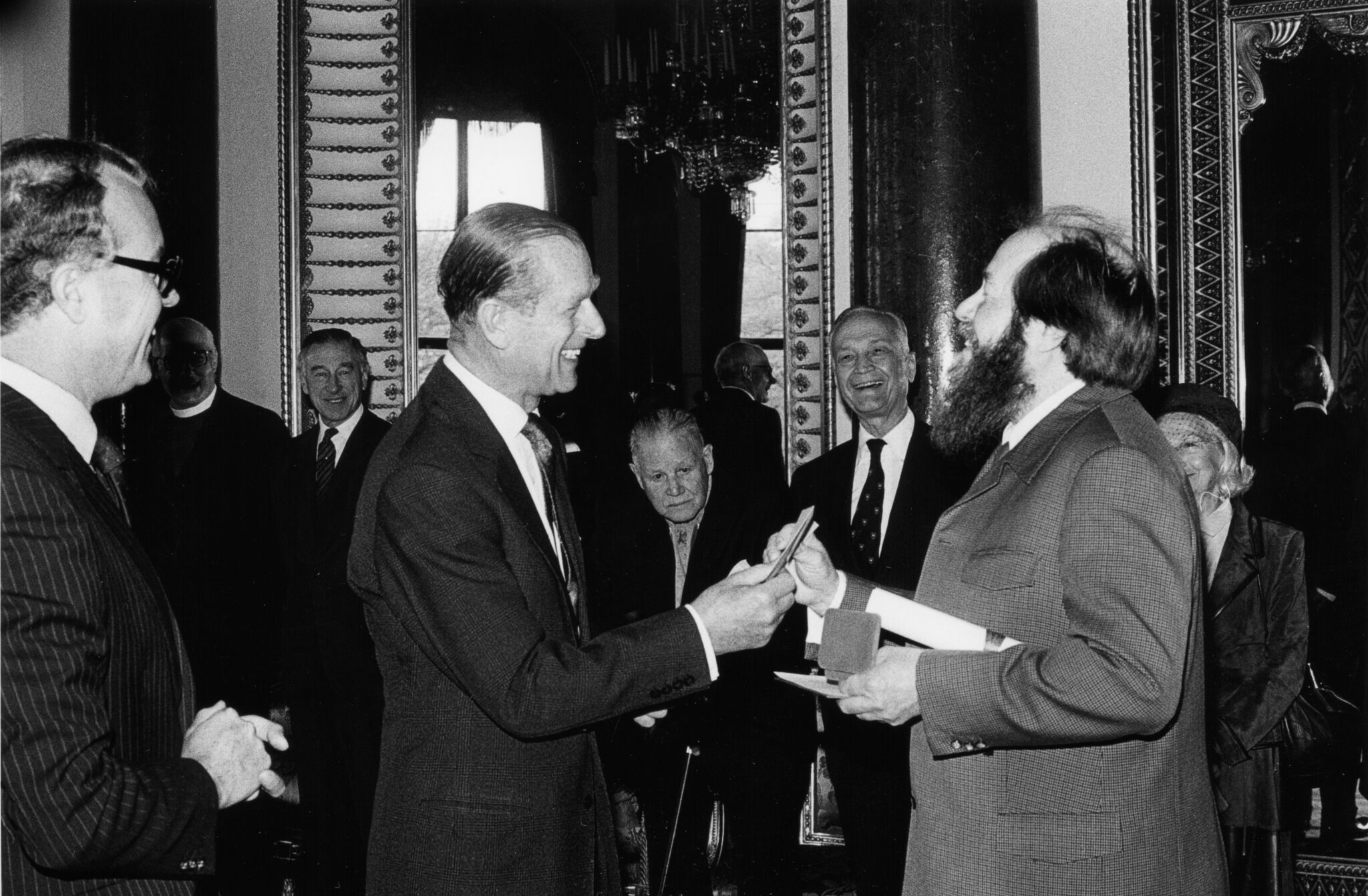In 1973, the first Templeton Prize was given to Mother Teresa. In 2023, we celebrate the 50th anniversary of this award. Over the next 52 weeks, we will highlight each of our laureates and reflect on their impact on the world. From humanitarians and saints to philosophers, theoretical physicists, and one king, the Templeton Prize has honored extraordinary people. Together, they have pushed the boundaries of our understanding of the deepest questions of the universe and humankind’s place and purpose within it, making this (we humbly think) the world’s most interesting prize.
Aleksandr Solzhenitsyn’s powerful writings and devastating critiques of Russian Communism renewed vitality in the Orthodox tradition and evidenced a profound spirituality.
Born on December 11, 1918 into a family of Cossack intellectuals in Kislovodsk, Russia, Solzhenitsyn was raised solely by his mother after his father’s death. He studied both mathematics and literature at the University of Rostov-na-Donu and Moscow State University. Solzhenitsyn fought in World War II and ended his military career as captain of artillery. In 1945, he wrote a historic letter criticizing Joseph Stalin and consequently spent eight years in prisons and labor camps and the following three years in exile. While imprisoned, he wrote in secret. Solzhenitsyn became severely ill due to cancer while in exile, but after receiving treatment at a cancer clinic, Solzhenitsyn returned to central Russia in 1956. He became a mathematics teacher and continued to write.
Convinced that his writings would never be printed due to the Soviet regime’s strict rule, Solzhenitsyn rarely allowed any of his loved ones to read his writings. At the age of 42, he began submitting his works for print. Soon after, Soviet authorities halted the printing and seized his plays and papers. He later published Gulag Archipelago which resulted in retaliation from the Soviets. In 1974, he was arrested and stripped of his Soviet citizenship. After some time in Germany and Switzerland, Solzhenitsyn and his family moved to Vermont. He spent many years quietly writing essays, speeches, and other works. Solzhenitsyn later returned to Russia, where he joined the Russian Academy of Sciences as a member and received the Russian State Prize. He died at age 89 in Moscow.
Solzhenitsyn was awarded the Templeton Prize in recognition of his unquenchable spirit for truth and dedication to his faith. The eight Prize judges cited the writer as “a pioneer in the renaissance of religion in atheistic nations.” From the witness of Aleksandr Solzhenitsyn, we have learned new insights into the oldest truth of all — that love of God is the only final answer.
Prince Philip, Duke of Edinburgh presented the Prize to Solzhenitsyn at Buckingham Palace on May 10, 1983. They were joined by many special guests, including The Rt. Hon. the Lord Pritchard, who spoke at the event.
-

Aleksandr Solzhenitsyn accepting the award from HRH Prince Philip
“Our life consists not in the pursuit of material success but in the quest of worthy spiritual growth. Our entire earthly existence is but a transitional stage in the movement toward something higher, and we must not stumble and fall, nor must we linger fruitlessly on one rung of the ladder. Material laws alone do not explain our life or give it direction.”
- Aleksandr Solzhenitsyn
“Millions of his fellow prisoners despaired in the Gulag Archipelago. Many of them died. Solzhenitsyn found spiritual resources to continue to live. … Sir, it is your own spiritual life which gives you universal outreach, for not only do you know the high price of liberty, but how much personal freedom and religious freedom require each other. You have kept both literature and the human spirit alive when others have faltered.”
- The Rt. Hon. the Lord Pritchard
Still Curious?
Learn more about Aleksandr Solzhenitsyn here!

